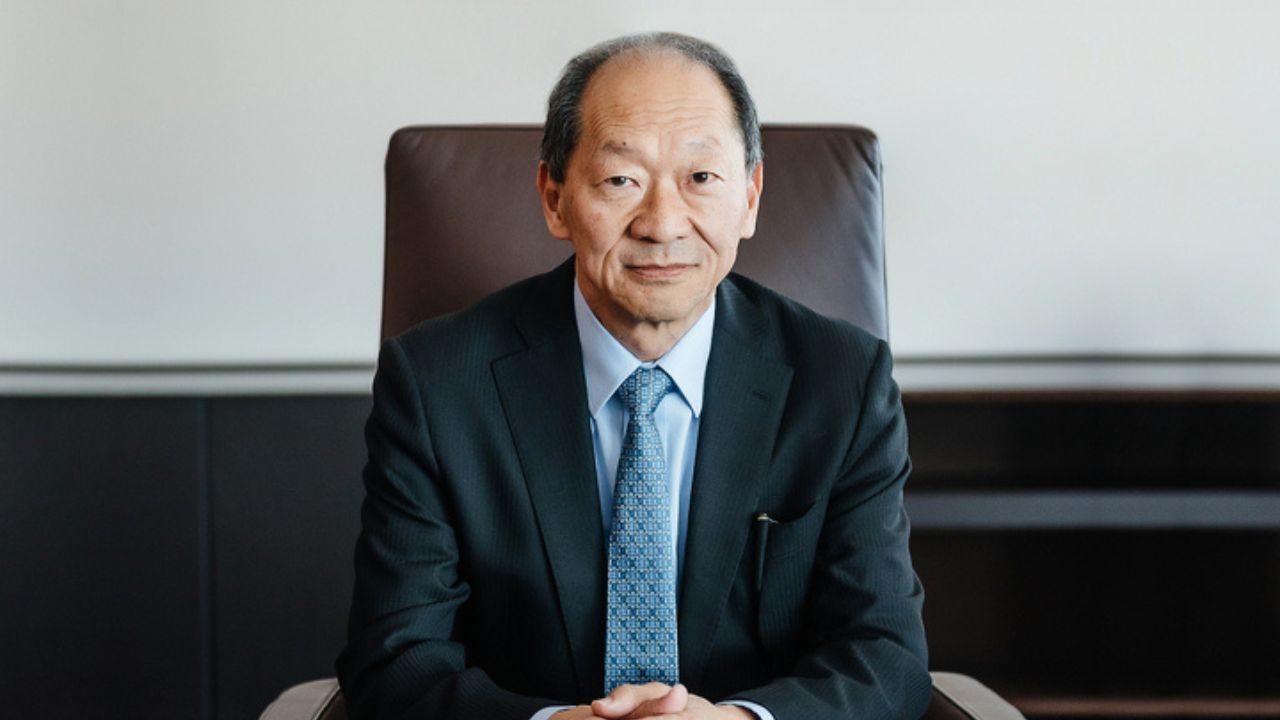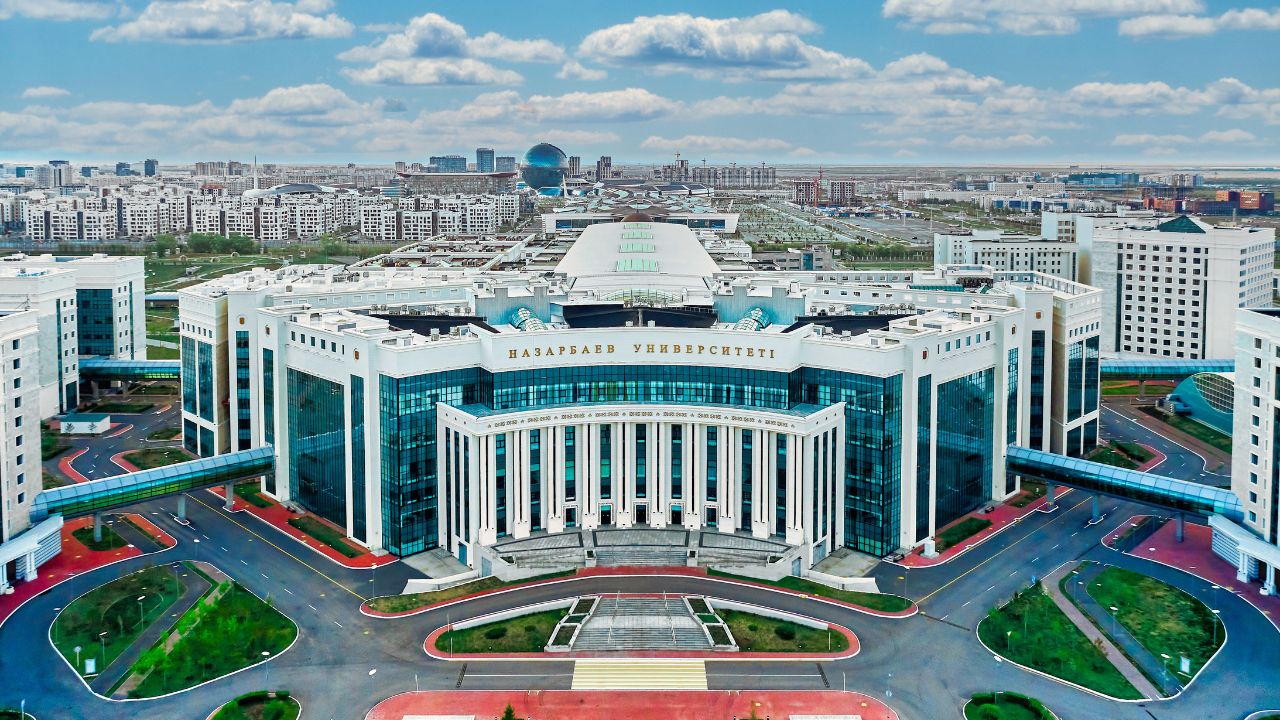NUR-SULTAN – Just ten years ago, the idea of having a world-class university in the middle of the steppes would seem close to impossible, but it is now becoming a reality – since its creation in 2010, Nazarbayev University (NU) pioneered educational reforms, academic freedom, merit-based admission, and progression as well as academic integrity serving an example for many universities in the country. In an interview with The Astana Times, NU President Shigeo Katsu spoke about the achievements over these years, the reforms in Kazakhstan, and the role of young people.

Shigeo Katsu has led the university since its establishment in 2010. Photo credit: NU press service
NU opened its doors to students in 2010. The 2011 Law on the Status of NU gave the university full autonomy in promoting its values of academic freedom, academic integrity, and transparency. The university has around 6,000 graduates and another 1,600 are expected to graduate in June.
The success, however, was not immediate. Katsu said the university faced much skepticism in the beginning.
“I think people never thought that it would be possible to create a different type of university. And I think, therefore, the first achievement is that we were able to show that something that existed maybe on paper is actually reality. The university is very much merit-based, where we can wholeheartedly say that everybody enters through the front door, they must all meet all admission requirements. There are no under-the-table payments or enrollment through connections,” said Katsu, who headed the university since its establishment.

NU campus. Photo credit: NU press service
He explained that commitment to academic integrity and transparency stems from the university’s initial mission to build future leaders, but also because of its aspiration to become a world-class research university.
From the very idea to implementation, building up research has been a key priority for the university. While it takes time, innovation systems of an increasing number of countries are built on the basis of university-based research which can then lead to new technologies and products, and the development of new industries – all to support the sustained development of the country’s economy.
For every research-oriented university, a process of integrating learning and research is among the key indicators of success. Since 2011, NU scientists and students have published over 5,600 scientific articles, and 14.1 percent of them have been in the top 10 most cited global journals, thus building NU’s international status and credibility.
“Spearheading education reform has been our mandate. And so it was expected from us to share all our experiences, the good and the bad, with the rest of the higher education system in Kazakhstan. And we’ve been doing so almost since the beginning by conducting training and courses for leadership of other universities,” said Katsu.
It took several years before the university’s system started to be understood. “I think sharing our experience and this initial one-way training has more recently given way to create more of a professional community in various areas that meet their respective specific needs,” said Katsu.
The COVID-19 pandemic disrupted learning processes globally and NU was no exception, but it was overall in a better position than most universities in Kazakhstan for this “brutal shift,” according to Katsu.
“It was tough on the students. (…) It is only in this spring semester that we started to shift to a mix of online and offline. Students are mostly back and very happy. What online courses cannot replace is the human contact, the knitting of social networks, and the building of a community. The social fabric has been weakened during the pandemic,” he said, noting that implications of the COVID-19 might be felt for years to come.
Speaking about the reforms in the country’s education sector, he said they come right at the time when the country is seeing the impact of the baby boom since the turn of the century.
“In the 1990s, the birth rate went down because of the so-called transition recession. And then in the 2000s, birth rates started to go up and the economy started to take off. And so now, those baby boomers of the early mid-2000 start to graduate from high school, they are ready to either go to the job market or higher education. And this will continue for quite a number of years. And as you know, this has huge implications for higher education,” said Katsu.
He emphasized that a country does not need too many universities, but rather more important are enough resources to equip them. There are over 120 higher education institutions in Kazakhstan. Katsu said for a country of the size like Kazakhstan, 40 would be enough.
“The data shows that there are five times more university graduates every year than can meaningfully be absorbed by the job market,” he said. “Employers have a hard time finding graduates that meet their expectations, both in terms of the discipline skills, and in particular, the so-called soft skills, e.g. time management, asking questions, critical thinking, and working in teams.”
The education system requires a “fundamental rethink,” said Katsu, noting that technical and vocational education and training (TVET) still remains neglected.
President Kassym-Jomart Tokayev visited the NU campus on May 4, where he got acquainted with the educational, research, and development activities and the development strategy.
“He understands that what we try to do through our education and research that translates into our graduates, research, and innovation output, are the things that he imagines for the New Kazakhstan. He encourages us all to really be more ambitious and be even more active,” said Katsu.
And supporting the young generation will serve the country’s goal to build a New Kazakhstan, where young people will be agents of change.
“While young people have to drive change, I think they also have to be quite diplomatic and respectful of the achievements of the elders. There is always a reason why existing structures exist. You have to show respect for them and within a certain framework, try to introduce changes that the elder generation understands. No need to fight them, because it creates unnecessary friction and antibodies to change,” said Katsu.
He also considers maintaining links between students and graduates a very important task moving forward.
“In the United States, alumni associations are enormously important, not least for fundraising. And we want to obviously create very strong links between our graduates and ourselves. We want our graduates to serve as examples for our current students so that they look up to them as role models,” he said.
The connections between graduates and university should promote lifelong learning, noted Mr. Katsu, saying that a rapidly changing world with new trends and technologies requires constant upskilling.
“In today’s world, what you learn in school or in our classrooms is going to be obsolete maybe in five to 10 years. Especially in data sciences, but also engineering and bio-medicine, progress is so fast,” he added, saying alumni meetings may in the future include lectures where graduates can get a boost on some of the latest knowledge and insights.
